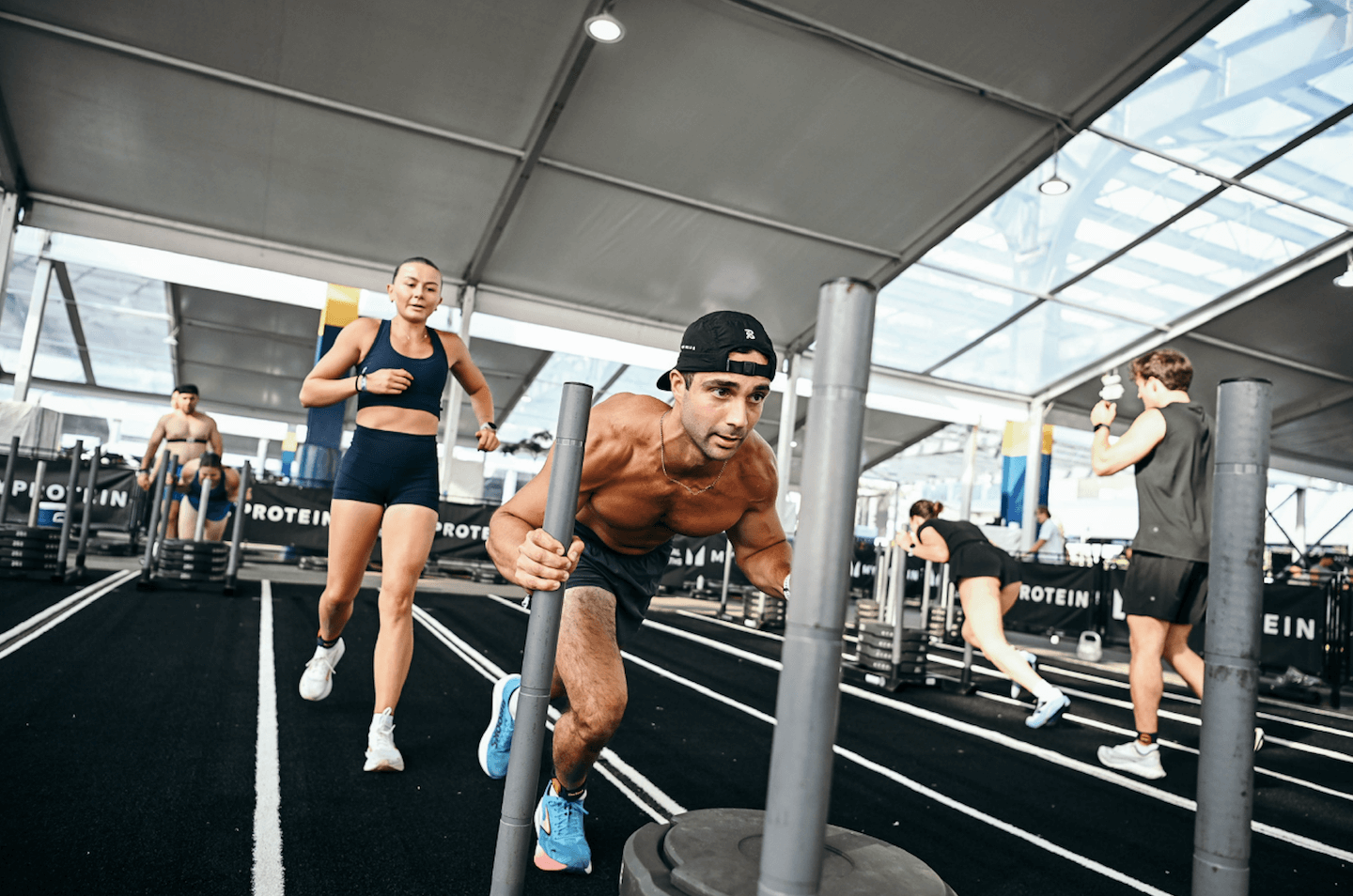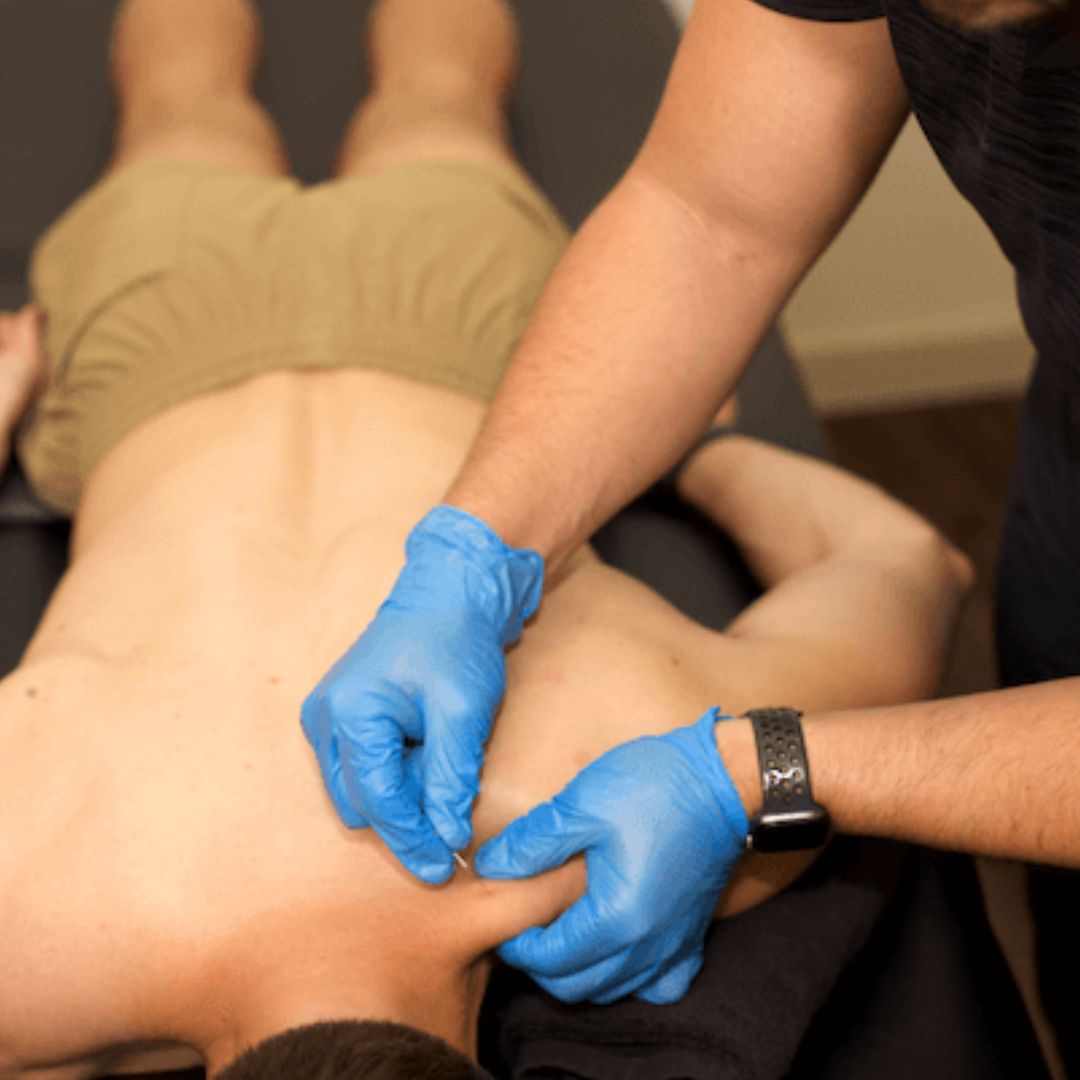What Is HYROX?
HYROX is a high-intensity, hybrid fitness competition that pushes the limits of both endurance and strength. Unlike a typical race, HYROX challenges athletes with a combination of eight functional workout stations, each separated by a 1K run — totaling 8K of running and 8 intense fitness tasks.
It’s a unique blend of CrossFit-style functional training, Spartan Race grit, and 10K stamina, all in one grueling event.
HYROX Race Format:
1. 1K Run
2. 1,000m Ski Erg
3. 1K Run
4. Sled Push
5. 1K Run
6. Sled Pull
7. 1K Run
8. Burpee Broad Jumps
9. 1K Run
10. Row 1,000m
11. 1K Run
12. Farmers Carry
13. 1K Run
14. Sandbag Lunges
15. 1K Run
16. 100 Wall Balls
Why Physical Therapy Is Key for HYROX Athletes
At Voltex Physical Therapy in Austin, we’ve worked with HYROX athletes of all levels — from first-timers to experienced competitors. HYROX exposes movement inefficiencies, imbalances, and recovery deficits more than most races. If something is off — mobility, control, or recovery — it will show up during the race.
Our HYROX-Specific PT Focus:
- Identify and correct movement limitations before they become injuries
- Build functional strength and neuromuscular control tailored to race demands
- Optimize joint mobility, core stability, and recovery routines to support performance
How to Prepare for HYROX — Backed by Physical Therapy
To truly succeed in HYROX, you need more than grit — you need a smart, science-backed training strategy.
1. Master the Movements
Each HYROX station places different demands on your body:
- Sled Push & Pull: Core stability, hip drive, and shoulder control
- Ski Erg & Row: Posterior chain endurance and aerobic capacity
- Burpees & Lunges: Explosiveness, coordination, and mobility
- Wall Balls: Overhead shoulder mobility, thoracic extension, and squat mechanics
PT Insight: At Voltex, we use movement screening and video analysis to identify form breakdowns early and reduce injury risk.
2. Address Mobility Restrictions
Mobility restrictions can drastically impact performance and lead to compensatory patterns. Tight hips, ankles, or thoracic spine may contribute to:
- Knee pain
- Low back strain
- Shoulder impingement
Recommended Mobility Targets:
- Hip flexors, hamstrings, and adductors
- Ankle dorsiflexion
- Thoracic spine rotation and extension
We often combine mobility drills with dry needling and manual therapy to accelerate progress.
3. Build Core Stability the Right Way
Core stability is critical in every aspect of HYROX — especially under fatigue. Rather than focusing on crunches, we recommend:
- Anti-rotation drills like Pallof presses
- Dead bugs with posterior pelvic tilt
- Farmer’s carries with upright posture and breath control
These build true trunk control, reduce spinal stress, and enhance running and station performance.
4. Train Like You Race — Recover Like a Pro
Training volume and intensity matter — but so does recovery. Overtraining is common in HYROX prep and often leads to fatigue, plateau, or injury.
Recovery Strategies to Implement:
- Scheduled deload weeks
- Active recovery sessions such as yoga, mobility flows, or PT-guided soft tissue work
- Blood Flow Restriction (BFR) training for strength gains with minimal joint stress
5. Work with a HYROX-Savvy Physical Therapist
At Voltex Physical Therapy, we specialize in treating and training hybrid athletes. Whether you’re managing an injury or building a race-specific plan, we help athletes:
- Prevent injury with individualized assessment and treatment
- Optimize strength, mobility, and endurance for race-day demands
- Build customized prep plans to peak at the right time
Final Thoughts
HYROX is more than a fitness test — it’s a complete challenge of strength, endurance, mobility, and mental toughness. Success depends on how well-rounded you are, not just how hard you train. Working with a sports physical therapist can help you optimize your movement, recover faster, and perform at your best — pain-free.
Voltex Physical Therapy – Austin, TX
Helping HYROX athletes train smarter, recover faster, and compete without pain.
Book a Performance Assessment: www.voltexpt.com/contact
Follow for more training tips: @voltexpt on Instagram



